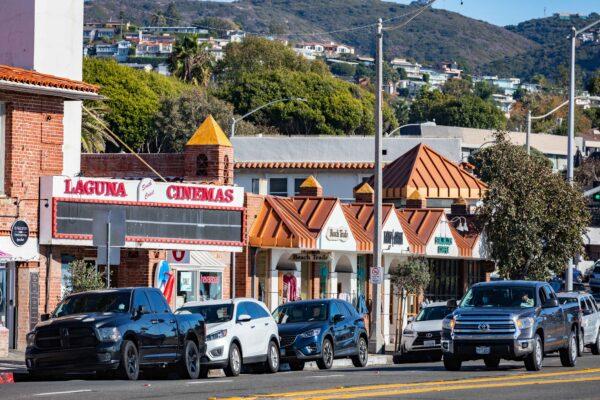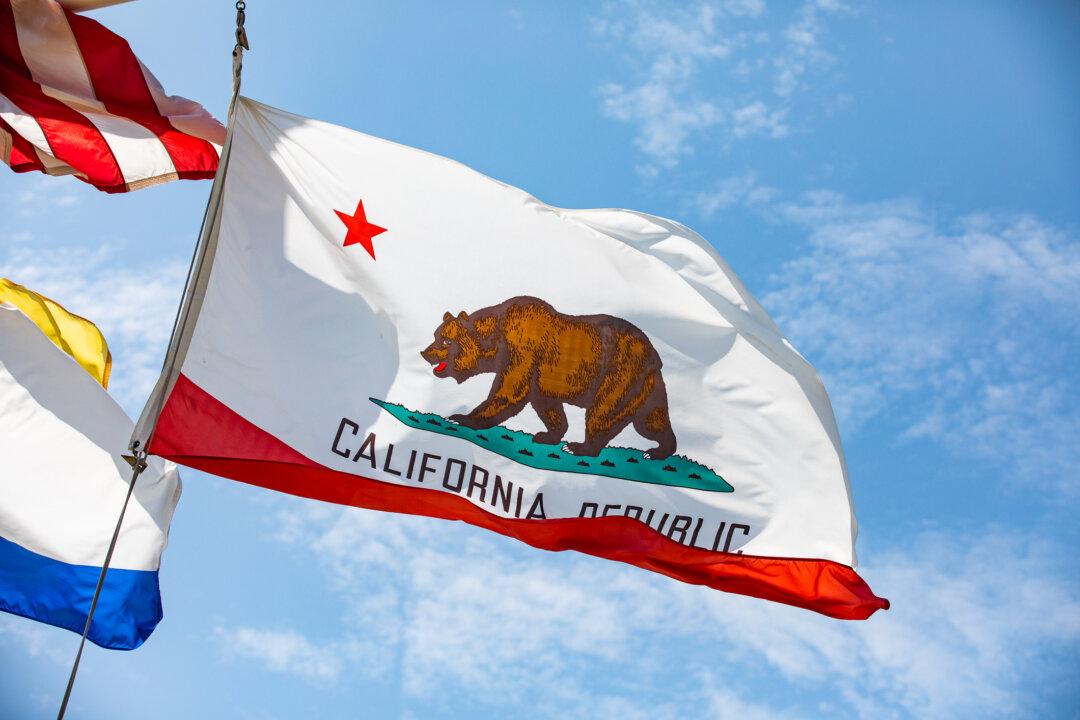Laguna Beach voters will decide if large developments and hotel renovations should be subject for a public vote for approval and to raise the minimum wage for the city’s hotel workers in the Nov. 8 election.
Measure Q
The measure would put large development proposals along the Coast Highway and Laguna Canyon Road to a public vote for approval.
A row of shops faces Main Beach in Laguna Beach, Calif., on Nov. 18, 2020. John Fredricks/The Epoch Times





